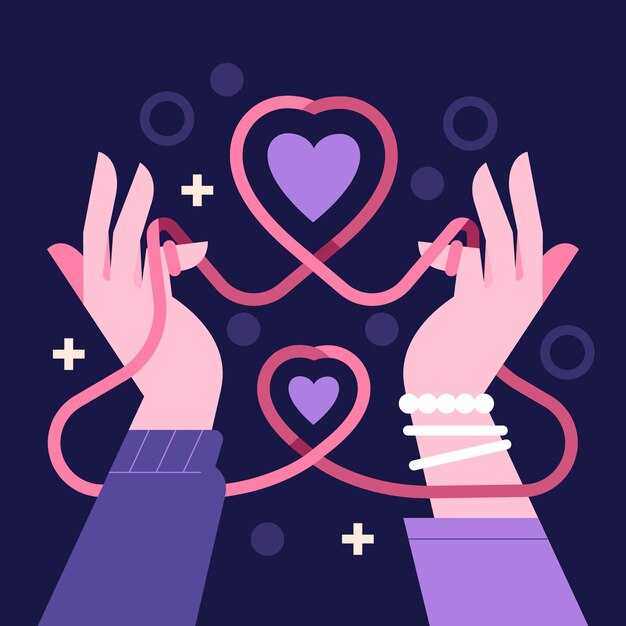Okay, here’s the situation: everyone is fixated on spotting red flags — narcissism, avoidance, gaslighting — wondering whether their partner is secretly manipulating them. That worry is understandable; protecting yourself is crucial, and no one wants to get involved with someone who will eventually neglect or exploit them. But there are two important points to consider. First, the lack of red flags doesn’t automatically mean the presence of positive signs. Second, during the early stages of dating, red flags are often scarce because people tend to be on their best behavior — narcissists included. So what’s a better approach? Yes, study red flags and know what shouldn’t be in a healthy relationship, but equally important is learning to recognize green flags — the qualities you should expect from a partner. When you know what genuine love and care look and feel like, you’ll more easily spot the fakes. Experts who authenticate currency spend more time studying real bills than every possible counterfeit; they learn the textures, the subtle marks, the genuine look, and that knowledge makes spotting a fake straightforward. The same principle applies to relationships: study what real affection, kindness, mutual respect, reciprocation, and emotional safety are like, and the phony versions become easier to detect.
Focusing endlessly on whether someone might be a narcissist can be counterproductive. If you’re asking that question, chances are this isn’t the person for you — they probably lack the green flags you deserve. It doesn’t matter if the issue is covert narcissism, avoidant attachment, or simply poor behavior; what truly matters is that they aren’t invested in a healthy relationship with you. If only one idea from this passage sticks with you, let it be this: the biggest green flag is how the person makes you feel. Do you feel safe with them? Respected and prioritized? Is their behavior consistent, or are they hot-and-cold, leaving you anxious? Are they matching your efforts? Can you be honest about your feelings without fear? Or are you still unclear about your standing with them after months together? If someone values you and wants the relationship to survive, it will be visible in the time and effort they invest. No relationship is flawless, but if things don’t begin in a healthy way, marriage won’t fix that. What matters is mutual respect, emotional safety, and genuine care for each other’s feelings and worth.
While you can’t control every variable in relationships, you can maximize your chances of success by becoming the kind of person who fosters healthy connections and by choosing a partner who does the same. So here’s a practical list of green flags to look for — and feel free to point out anything missing in the comments.
First, communication. Initial attraction might be physical, but how you communicate and interact determines whether you keep dating someone. A green flag is someone who listens, takes interest, asks thoughtful questions. A red flag is someone who constantly turns conversations back to themselves. Humor is a plus when it’s kind-hearted — do they tease in a way that’s playful and inclusive, or do they only direct jokes at you? Pay attention to how they argue with others or handle disagreements about politics, religion, or passions: can they disagree respectfully and tolerate differences without dismissing or invalidating others? That behavior hints at how they’ll handle crucial conflicts with you. As things become more serious, bring up the important topics: how long they usually date before committing, whether they’d date only one person at a time, what irritates them in conflict, what their last relationship fell apart over, what respect looks like to them, and which boundaries they consider essential. Many avoid these hard conversations early, assuming it will cause distance, but the opposite is true: clarifying expectations and standards for communication — especially during conflict — prevents disconnection later. If someone is put off by your clear boundaries, they’re likely not the right partner; it’s up to you to set the standard for how you should be treated.
Second, accountability. Narcissists may be charming initially, but there are things they struggle to fake. One green flag is the ability to own mistakes and genuinely apologize: not “I’m sorry you feel that way,” but “I’m sorry I hurt you; that wasn’t my intention, and I care about how my actions affect you — can we talk?” Mature people learn and grow from errors; immature people shift blame to avoid reflection. On the flip side, playing martyr — “I’m such a terrible person, you should leave me” — is not healthy humility either. Both extremes prevent repair and trust-building. Empathy is another quality narcissists rarely authentically simulate. A partner who tries to understand your experience, validates your feelings, and asks curious questions demonstrates emotional attunement. Empathy looks like: “I don’t know exactly how you feel, but I see you’re hurt and that matters to me; I’m here; let me know when you want to talk.” Real empathy seeks understanding and repair, asking about the meaning someone made of an event and what is needed to feel close again. Vulnerability is similarly hard to fake: can your partner speak about fears, needs, desires, insecurities, and the aspects of themselves they’re working to improve? It’s not about oversharing on the first dates, but as commitment grows, mutual openness about inner life is a green flag.
Another sign a narcissist won’t fake: celebrating your successes. A healthy partner will praise your achievements and say, “I’m proud of you — you earned this.” A red flag is someone who downplays your wins by claiming they were indispensable to your success. That kind of reaction reveals insecurity and a need to diminish others to protect the ego. If you grew up with that dynamic, it’s important to recognize it was a reflection of their shame, not your worth.
A lighter note: if someone truly dislikes dogs, there’s usually a backstory — perhaps trauma — and that’s understandable, but it’s also something to work through so you don’t miss out on one of life’s warmest connections. More seriously, a growth mindset is a key green flag. Beyond career ambition, does the person invest in personal growth? A major barrier in many relationships is a lack of self-awareness and emotional maturity: people who never reflect on their role in conflicts or consider their own emotions struggle to create closeness. If someone dismisses their own feelings or never examines their defensive patterns (defensiveness, contempt, name-calling, shutdown, passive-aggression), they’ll likely repeat the same destructive habits. Becoming aware means intentionally checking in internally: What am I feeling? Why did I react that way? Did I express my needs or withdraw? Those questions build the capacity to understand and meet a partner’s emotional world. It’s a green flag when someone is genuinely interested in growing and becoming a safer presence for their partner.
That said, relationships shouldn’t be a nonstop list of complaints. Dr. John Gottman recommends aiming for roughly fifteen positive interactions — affection, praise, playful moments, physical closeness — for every one negative interaction. Negativity has a place; it signals hurt and unmet needs. When a partner expresses pain vulnerably, the healthiest response is curiosity and validation, not dismissal. Saying, “I’m sorry that joke hurt you; I didn’t realize — thank you for telling me” and then changing behavior is the kind of accountability that heals. How conflict is handled often determines whether a relationship thrives or collapses: conflict can either strengthen trust and intimacy or destroy it, depending on how both people respond.
Another important green flag is equality: a relationship without dominance. You should never be spoken down to, belittled, or touched against your wishes. People who seek to dominate will tolerate behaviors from you they wouldn’t accept in themselves — that imbalance is a major warning sign. If you feel unable to assert boundaries because of past trauma or a conditioned submissive role, consider seeking professional support. Mutual respect — treating the other as valuable, learning their preferences and boundaries, asking how they feel loved — is essential. Self-centeredness and love cannot coexist. Teamwork means discussing practical matters like division of chores and checking in about stress levels: “Are you overwhelmed? Could you tell me if you ever felt neglected?” Humility to invite honest feedback is a profound green flag; it signals someone wanting to be a safe partner. If you’re humble and they still take advantage, that’s a red flag and reason to consult a professional.
Respect is also shown in how someone treats people who can’t benefit them: strangers, service workers, family, exes. If they habitually trash exes without acknowledging their own role, it’s a signal you’re likely to be spoken of similarly later. Early boundary-setting is one of the best defenses against narcissistic entanglement because narcissists dislike assertiveness — they want control, and if you won’t be controlled, they move on. That sting is temporary; in the long run it’s a blessing.
Trustworthiness is another huge factor. A trustworthy person’s behavior matches their words; they do what they say they’ll do. When mistakes happen, they take responsibility instead of deflecting, apologize genuinely, and outline how they’ll change. Honesty and transparency don’t mean confessing every trivial detail, but they do mean not intentionally hiding important things. Integrity — doing the right thing when no one is watching — creates the sense of safety and security a relationship needs. Trust is more than faith that they won’t cheat; it’s the confidence that they will show up for you, value you, and be available when needed. Actions like asking, “Is there anything I can do this week to help you feel more valued?” build trust over time. That kind of intentionality, mutual sacrifice, consideration, and consistent care is what strengthens a bond. Without it, couples often look back and say they “fell out of love,” when in reality they never built a secure foundation — they had chemistry or passion, but not sustained trust and safety.
Independence is also attractive. Early infatuation can feel wonderful, but it’s healthy when neither partner makes the other the sole center of their world. Beware of love bombing — an early sign of narcissistic manipulation where someone overwhelms you with attention and then gradually isolates you. A wise strategy is to take things slowly and maintain your life outside the relationship: keep friendships, hobbies, and routines. It’s a green flag when a partner has other healthy relationships and a clear sense of purpose or goals. That doesn’t mean a person can be so work-obsessed that they never make time for the relationship; balance matters, and you’ll need to evaluate what you can and cannot accept.
Personality-wise, flexibility and the ability to compromise are important green flags. Rigidity — an inability to adapt when plans change — may or may not be a dealbreaker depending on your compatibility, but pay attention. Gratitude and a generally appreciative outlook are attractive qualities; people who notice and acknowledge positive things, offer encouragement, and show thoughtfulness create steady, trust-building moments. Little gestures — a supportive text before a job interview, a hug at the door, doing dishes — are not extras; they are the essentials that make partners feel loved and secure.
Choosing who to commit to — who to be intimate with, marry, and raise children with — is a big decision. The aim is to become the kind of person who fosters healthy relationships and to choose partners who do the same. Some people never experienced real safety or trust in relationships growing up and therefore gravitate toward the familiar patterns of neglect, sacrifice without reciprocity, or chaotic hot-and-cold dynamics. If you’re unconsciously drawn to partners who require you to work for love and acceptance because that’s what felt normal in childhood, recognize that neglect shouldn’t be mistaken for security. You deserve unselfish, consistent, warm love: a partner who complements you, values you, and reciprocates. Asking for a relationship that feels safe, valued, and steady is not asking too much.
Thanks for reading — and if all else fails, remember that one of the simplest, most lovable qualities a dog shows is unconditional love.


 Never Date Anyone Without These Green Flags!!">
Never Date Anyone Without These Green Flags!!">

 7 SECRET TESTS You MUST Pass for AVOIDANTS to CHOOSE YOU | Avoidant Attachment Style">
7 SECRET TESTS You MUST Pass for AVOIDANTS to CHOOSE YOU | Avoidant Attachment Style">
 Anxious vs Avoidant: The Dramatic Relationship Trap You Can’t Escape | Avoidant attachment style">
Anxious vs Avoidant: The Dramatic Relationship Trap You Can’t Escape | Avoidant attachment style">
 Get Out of Romantic Obsession And Open Your Life to Real Love">
Get Out of Romantic Obsession And Open Your Life to Real Love">
 Quick Technique to Instantly Change How You See the World">
Quick Technique to Instantly Change How You See the World">
 How much PAIN have you BURIED in your Marriage?">
How much PAIN have you BURIED in your Marriage?">
 愛は努力に等しい。">
愛は努力に等しい。">
 苦難を乗り越えて人生を変える (4ビデオコンピレーション)">
苦難を乗り越えて人生を変える (4ビデオコンピレーション)">
 あなたは、大切にしてくれる人がいるべきです。">
あなたは、大切にしてくれる人がいるべきです。">
 相手を防御的にさせずに気持ちを伝えるには!">
相手を防御的にさせずに気持ちを伝えるには!">
 Quit being a Self-Centered JERK in your Relationships">
Quit being a Self-Centered JERK in your Relationships">